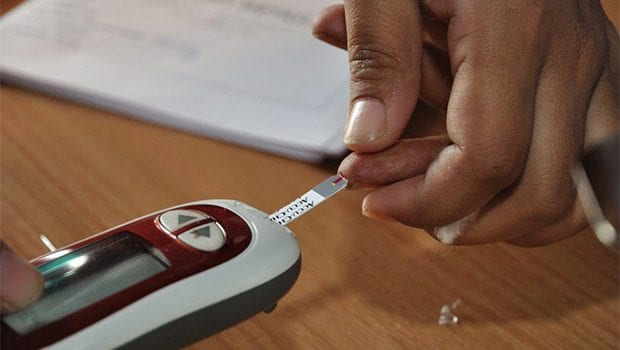
There is good news on the diabetes front. A recent report from the Centers for Disease Control and Prevention noted that the number of US adults diagnosed with diabetes dropped from approximately 1.7 million in 2009 to 1.4 million in 2014. Health professionals are hoping that this is a trend and not a one-time fluke.
The American Institute for Cancer Research and the American Cancer Society are rejoicing as well. One wonders why organizations that specialize in the diagnosis, treatment and prevention of cancer, are thrilled about the statistics for diabetes.
Apparently, there is a link between the two.
According to the ACS, research shows there is a clear link between type 2 diabetes and colon cancer. The two conditions share several common risk factors, including age, obesity, physical inactivity, tobacco and alcohol use and high consumption of red and processed meats. But research suggests that the link goes beyond the shared risk factors. Rather, it is the diabetes itself that may be the driving force.
Researchers from the University of Minnesota found that women diagnosed with diabetes had a 50 percent higher chance of developing colorectal cancer than women without the disease. Other studies have shown that among patients with colorectal cancer, those who also had diabetes were more likely to die than those without the disease. These results occurred even after controlling for factors, such as stage of the disease, weight and history of smoking.
One theory revolves around excess amounts of insulin in the blood. The pancreas secretes insulin in response to a buildup of glucose in the blood. Glucose is the body’s source of energy, but cannot enter cells without the help of insulin. In those with diabetes, the body does not respond efficiently to the insulin, which causes the pancreas to ramp up production.
Research by the AICR suggests that high levels of insulin promote the production of a protein that plays a role in cell growth and proliferation. It is this environment — excess glucose and insulin — that facilitates and promotes the development and growth of cancer.
It’s not just colon cancer that scientists theorize is linked to type 2 diabetes. The connection is also strong with kidney, liver, pancreatic and breast cancers.
Additionally, the threat of cancer is not confined to only those with full-blown diabetes. People with prediabetes — blood glucose levels that are higher than normal but not yet high enough to be diagnosed as diabetes — are also at risk. This poses a serious problem given the fact that an estimated 86 million people in this country have that disorder.
Since prediabetes typically has no symptoms, most people are unaware of the problem. Unknowingly, they also experience higher levels of glucose and insulin in the blood.
One risk factor in particular — body fat — may be a significant factor behind the diabetes-cancer connection. Hormonal changes caused by high body fat may be the trigger. Studies have found that obesity is now linked to 10 types of cancer. Four of them — colorectal, pancreatic, kidney and post-menopausal breast cancer — are also linked to type 2 diabetes.
Additional research is required to pinpoint the cause of these associations. In the interim, health professionals advise people with diabetes in particular to follow regular recommended cancer screening guidelines.






